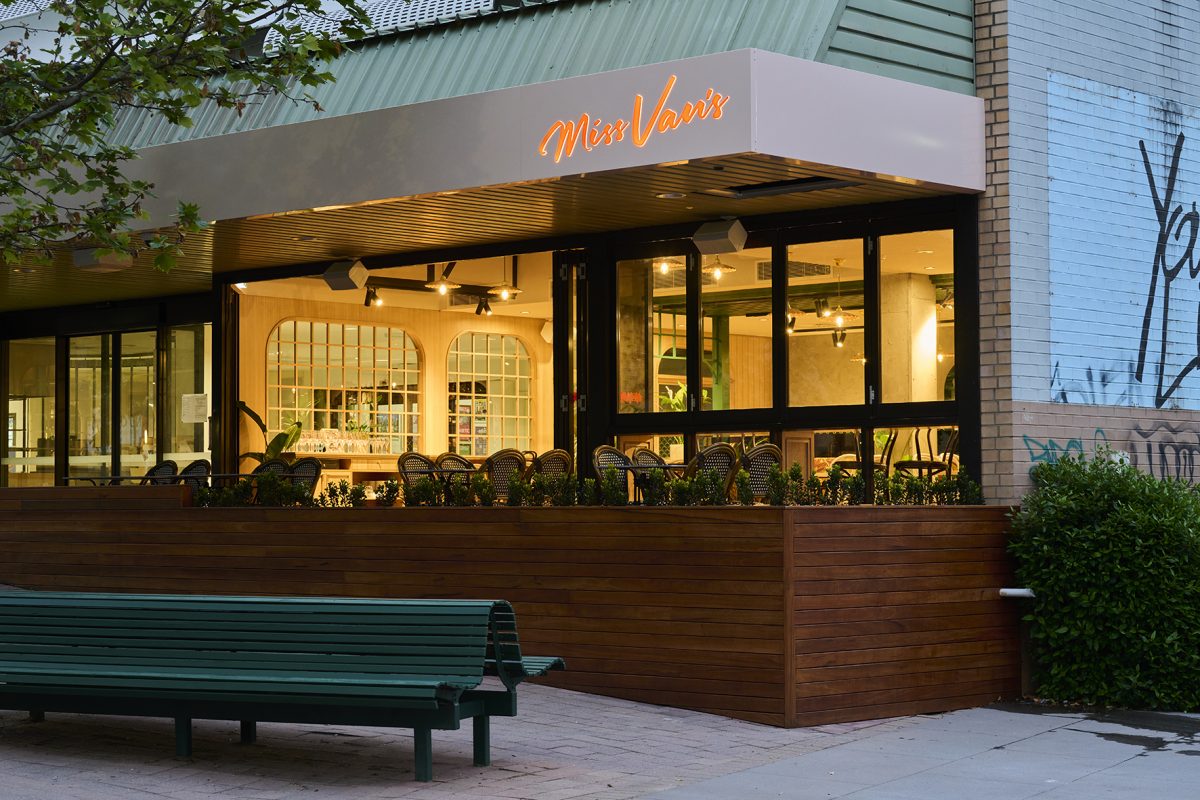
Miss Van’s in Marcus Clarke Street. Photo: Rohan Thompson, Pew Pew Studio.
Established Australian food writer John Lethlean recently had a review removed from the Delicious website after being criticised on Instagram for using sexist language in his piece.
Food writers, chefs and restaurateurs criticised the piece, with Melbourne-based food writer Dani Valent calling out his comments as “sexist, disrespectful and pervy”, on the offending Instagram post. Several commenters pointed out that women are generally underrepresented and often face harassment in the hospitality industry, so to have this exacerbated by the food media establishment was unacceptable.
The incident has sparked questions about whose voices are amplified in the food media space and emphasised the need for more diversity.
Reviewers bring their own tastes, experiences, backgrounds and biases to the table, so when these food reviewers are older men with an Anglo background – such as John Lethlean – these biases may more often impact people of colour who are cooking non-Western food. For Andrew Duong, owner of modern Vietnamese restaurant Miss Van’s, that lack of diversity is reflected in the way reviews are written and judged.
“Every restaurant is so unique in what it offers, how it operates and what it’s trying to do,” he said. ”If it’s a score out of 10, or out of 20, how can you hold restaurants that differ from each other so much to such a narrow score?”
It can be difficult to fully understand the diversity (or lack thereof) in food media when anonymity is a cornerstone of the traditional review system. While there are a handful of well-known faces in the industry, awards are generally decided by judges whose identities are kept well hidden. The Australian Good Food Guide (AGFG) describes the identities of its ”inspectors” as ”strictly confidential” to maintain ”accuracy and unquestionable objectivity”.
It’s a worthy ambition, but in a place such as Canberra, anonymity is hard to come by.

Miss Van’s owner, Andrew Duong. Photo: Rohan Thompson, Pew Pew Studio.
Many of the awards in Australia are based on the Michelin system (which does not operate in Australia but is widely regarded elsewhere in the world). The much-sought-after Michelin star started life as a marketing campaign for the Michelin tyre company. Motorists were encouraged to drive to the countryside to visit regional restaurants, and therefore wear out their tyres faster.
Tyre sales are no longer part of the modern restaurant awards industry, but profits definitely are.
Some brands are in the business of selling newspapers, some are looking for advertising space. Mr Duong points out that many awards are given out by industry bodies that require membership fees to be paid if you’d like your restaurant to be considered for a gong.
“These are all companies that do it for profit. So how do you distinguish between them and educate your customers?” Mr Duong said.
And there’s a dizzying number of awards to educate them about. The AGFG and the Good Food Guide (affiliated with various state-based newspapers) both award chef’s hats, but use different numbering and ratings systems. The AGFG gives out stars for Readers’ Choice Awards and the Good Food Guide has adopted stars to acknowledge high-achieving restaurants at a lower price point. And we haven’t even started on the separate fork-and-knife rating system!
Are you confused yet?
For Mr Duong, one of the most valuable ways people can recognise his restaurant is with a word-of-mouth recommendation.
“Word of mouth is so much more valuable to a business than those [anonymous] reviews you see online … Word of mouth is so important. And that’s why social media is such a good thing,” he said.
The increasing role of social media has levelled the playing field and changed the game. A review in traditional print media by a well-established writer may be less relevant to an up-and-coming restaurant than a trending TikTok reel by a young foodie. And it was social media comments that challenged the establishment when that sexist remark was allowed to be published.
This is not to say that awards and reviews are not worthwhile, or that those who receive them are not worthy. Mr Duong emphasised that awards and reviews are still an important part of the industry, and those who win them deserve them. Awards can be a brilliant way to acknowledge the best of the best, and in an industry that has taken more than its fair share of hits in the past few years, these victories are especially worth celebrating.
“Reviews are important because reviews get people in the door,” Mr Duong said. ”And then it’s the responsibility of you as the business operator and your staff to then execute that experience and give the customer what they want.”
















